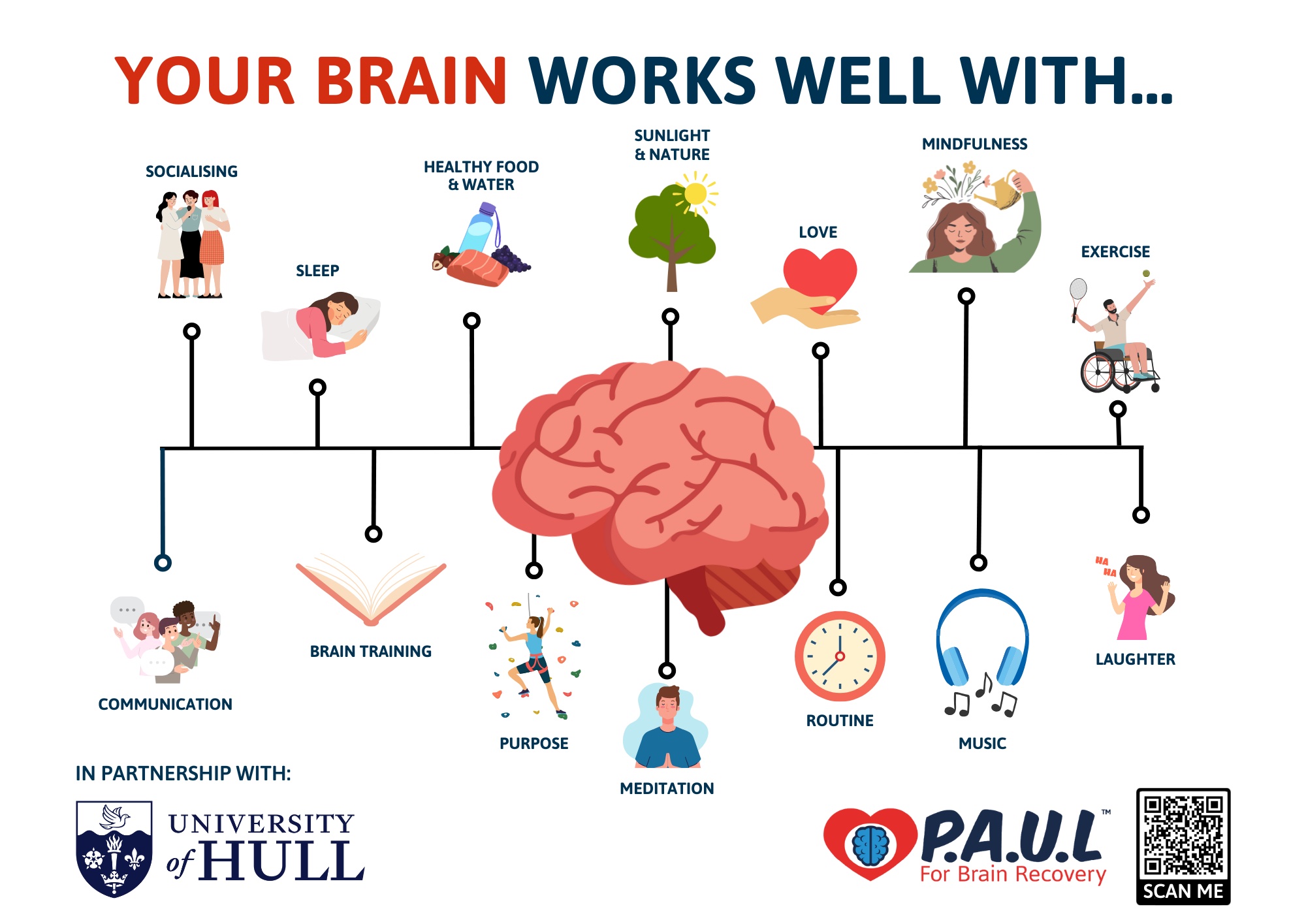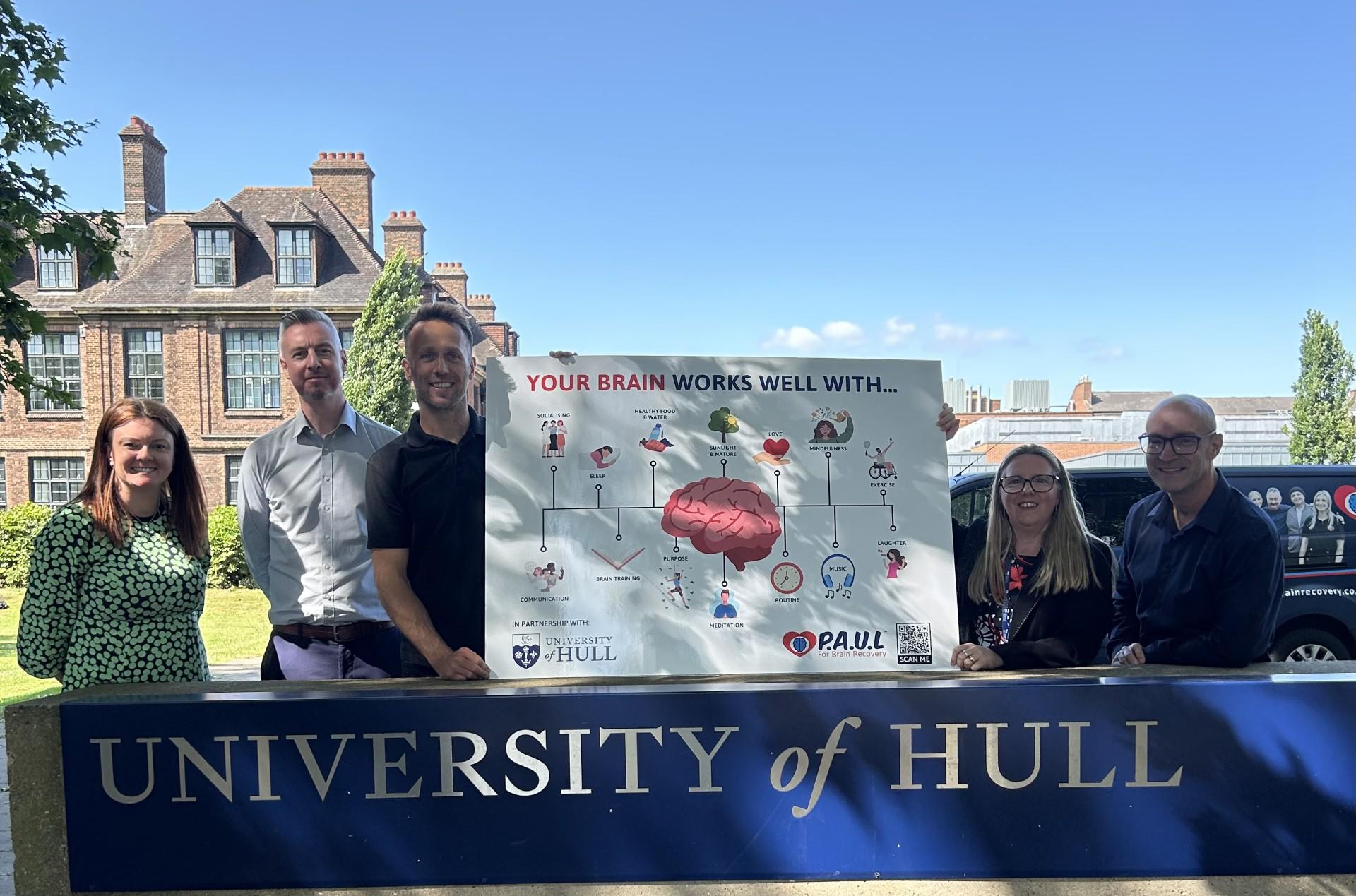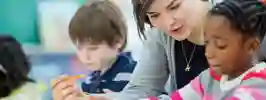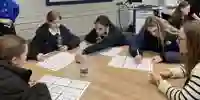Schools welcome new resources to better understand brain health
Schools reopening across Hull and East Yorkshire this week will have even more brain power and be better able to support enquiring minds thanks to an innovative partnership between the University of Hull and a local charity.
Working with P.A.U.L For Brain Recovery, researchers at the University have developed teaching aids to help young people learn more about their brains, and how to keep them healthy.
P.A.U.L. For Brain Recovery works with families affected by Acquired Brain Injuries (ABI). To support them in their recovery the charity developed “Brain Health Boards” to illustrate 14 essential aspects for good brain health.
Founder Paul Spence said: “I realised there was a lack of support materials during my recovery from brain injury. The Brain Health Board was originally developed to ensure those with brain injuries had access to resources to support healthy living.” Recognising that the Boards had wider applications Paul started to talk to schools.
“For all the recent focus on young people’s mental health, and the benefits of a healthy diet with proper hydration, we don’t talk about the brain. You can’t separate the brain from all those other things.”Dr Kelly Dockerty
Senior Lecturer in Education
Lead researcher Dr Kelly Dockerty said: “While teachers responded positively, they felt they didn’t have the resources to support their conversations with children and young adults. That’s why Paul came to us.
“For all the recent focus on young people’s mental health, and the benefits of a healthy diet with proper hydration, we don’t talk about the brain. You can’t separate the brain from all those other things.”
Working with Professor Jonathan Glazzard (School of Education) and dietetics expert Joanne Black (Faculty of Health), with Paul and the charity’s operations manager Leigh North, the team set about creating materials to support better conversations about brain health. The reception from teachers has been enthusiastic.
Dr Dockerty said: “In schools where the boards were trialled teachers told us that helping young people learn about brain health and well-being is important for their self-care and safety. They felt that they could now initiate and develop deeper discussions in lessons such as Science, Physical Education, and Personal, Social, Health, and Emotional Education around the 14 wellness aspects. Brain Health Boards are now being introduced in schools across the region.
“It’s been really exciting bringing people together, working collegiately and connecting with the city. I’ve learned a lot and grown as a researcher, understanding more about community-based initiatives. We’ve worked together as a team to solve problems and develop resources and we’ve valued each other’s contributions, not just as researchers but as people.”

Paul said:
“It’s been great to work with the university to further develop the Brain Health Board into a vital educational resource — helping young people learn about brain health and well-being to support their development and mental health. It’s something that matters to everyone. Soon we will finalise resources to support adults to nurture their brains to thrive in their personal lives, the workplace and beyond.”
As Brain Health Boards are introduced into more schools the team will continue to work with young people and their families, to understand the impact that they have across the curriculum and on young people’s lives.
The University of Hull will host the charity’s “Big Brain Roadshow” during Welcome Week (15–19 September). Students will have the opportunity to walk through a giant inflatable brain and access more information to learn more about brain health, the 14 wellness aspects, and the collaborative work between the University of Hull and P.A.U.L For Brain Recovery.

Share this story
Last updated 01 September 2025, 09.01
Neil Trotter
Corporate Communications Specialist
What to read next

University evaluation supports roll out of educational approach focused on childhood trauma
04 July 2025

University of Hull's higher education access scheme praised as UK best practice
30 April 2025
Media enquiries
For all enquiries, please get in touch with our press office.